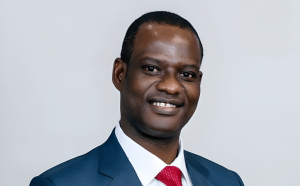Commissioner, Education, Science, Technology and Innovation (ESTI) at the African Union (AU)

The African Union (AU) is a continental body consisting of the 55 member states that make up the countries of the African Continent. It was officially launched in 2002 as a successor to the Organisation of African Unity (OAU, 1963-1999). We are an Integrated, Prosperous and Peaceful Africa, driven by its own citizens and representing a dynamic force in the global arena.
Applications are invited for the position below:
Job Title: Commissioner, Education, Science, Technology and Innovation (ESTI)
Location: Addis Ababa, Ethiopia
Reports to: Chairperson of the African Union Commission
Directorate/Department: Education, Science, Technology and Innovation (ESTI)
Number of Direct: Reports One (1) Director
Number of Directorates and Agencies: 1 Directorate, 4 Specialised Technical Offices and the Pan African University
Job Family: Elected Official
Job Grade: SP3
Level: Six (6)
AU Values
- Respect for Diversity and Teamwork
- Think Africa Above all
- Transparency and Accountability
- Integrity and Impartiality
- Efficiency and Professionalism
- Information and Knowledge Sharing
Context:
- Under the direct authority of the Chairperson of the Commission, this position is responsible for driving the implementation of Education, Science, Technology and Innovation policies, programs and strategies in line with the aspirations of Agenda 2063, the associated medium-term plans and other key continental legal and policy frameworks. Leads engagement with the AU Member States and strategic partners in the delivery of the portfolio’s continental priorities.
- The Commissioner shall have a high commitment to pan-African values and the guiding principles of the African Union.
Main Functions
- Sets the overall goals of the Education, Science, Technology and Innovation portfolio in line with the AU Agenda 2063;
- Sets annual performance targets for the Education, Science, Technology and Innovation portfolio and report on annual progress to Specialized Technical Committees and AU Policy Organs;
- Provides regular reports to the Chairperson of the Commission on portfolio delivery;
- Carries out effective regular engagement and collaboration with, and timely reporting to the PRC and respective subcommittees;
- Drives the implementation of the AU Institutional Reform Agenda as part of the senior leadership team;
- Provides leadership and guidance to Directors in the implementation of policies and programs within the portfolio;
- Engages with Member States in order to pursue the Commission’s work to promote domestication of AU Agenda 2063 at the national level by Member States;
- Leads partnership negotiations and resource mobilization with Strategic Partners to finance continental programmes and priorities;
- Co-ordinates Specialized Technical Committees to promote the achievement of the departmental mandate;
- Strengthens regional coordination, cooperation and integration initiatives and ensure an effective division of labour with Member States and Regional Economic Communities
- Ensures effective collaboration in programme development with the AU Development Agency (AUDA-NEPAD);
- Collaborates with other members of the senior leadership team to ensure strategic coherence and overall synergy in the implementation of the Commission’s programme and the delivery of high impact results for the continent;
- Cultivates a knowledge management culture through promotion of research and publications that will ensure knowledge sharing and transfer within the department and with other departments across the Commission; and
- Supervises Directors and inspires high performance and delivery across the portfolio.
Specific Responsibilities
- Leads the implementation of AU Continental Education Strategy for Africa (CESA) aimed at aligning Africa’s education and training systems to meet the knowledge, competencies, skills, innovation and creativity required to nurture African core values and promote sustainable development at the national, regional and continental levels;
- Drives the development of continental policy frameworks and programs that contribute towards revitalized, quality, relevant, and harmonized education systems responsive to the needs of Africa;
- Leads the implementation of enabling policies aimed at accelerating Africa’s transition to an innovative-led, knowledge-based economy to achieve food security, prevention and control of diseases, peace and harmony in the society and wealth creation in the continent;
- Leads the development of policies and strategies to address the challenges of education, technical and vocational training to support economic development, creation of national wealth and contribute to poverty reduction through youth entrepreneurship, innovation and employment;
- Spearheads the implementation of an African Virtual and E-University that aims to make use ICT based programmes to develop relevant and high quality Open, Distance and eLearning (ODeL) resources to offer students guaranteed access to the University from anywhere in the continent and the world;
- Leads continental advocacy for an inclusive and equitable quality education and promote lifelong learning opportunities for all in the Member States;
- Leads engagements with Member States to secure the adoption of Pan-African University standards in all other universities within Member States to strengthen African higher education and research, address quality of education, promote intra-African collaboration, innovation and establish links with industry and social sector; and
- Drives the African Union’s education and scientific scholarships and awards initiative and oversee the work of specialist Africa Union institutions; and
- Drives strategic partnerships and resource mobilization for continental Research and Development;
Key Relationships
Internal Relationships:
- Executive Council of the African Union
- Permanent Representatives Committee
- Other AU organs
- Specialised Technical Committees
- AUDA-NEPAD
- Africa Continental Free Trade Area (AfCFTA) Secretariat
- Chairperson
- Deputy Chairperson
- Director-General
- Other Commissioners
- Other Directorates
External Relationships:
- AU Member States
- Regional Economic Communities (RECs)
- International development partners
- UN agencies and African Development Bank
- UN Security Organs;
- African private sector
- Civil Society Organisations
- Research Institutions and Policy Think Tanks
Academic Requirements
- Master’s degree in Education, Science and Technology, Social Sciences or closely related field from a recognized institution.
- A PhD in Education, Science and Technology, Social Sciences or closely related field from a recognized institution is an added advantage.
Relevant Experience:
- Have not less than eighteen (18) years of relevant professional experience with at least ten (10) years served in a senior leadership role preferably in an intergovernmental organisation or national government/public service, international or regional institution.
Language(s):
- Proficiency in one of the AU working languages. Fluency in another AU working language is highly desirable.
Required Skills:
- Demonstrated leadership experience with strategic vision and proven skills in managing complex organizations at the national, regional or international level;
- Demonstrated record of setting clear standards for accountability, probity, value for money and risk management and zero tolerance to fraud and corruption; for ensuring sound and transparent financial management; and delivering continuous improvement, impact, efficiency and effectiveness;
- Demonstrated intellectual leadership, creativity and proven ability to propose new ideas and lead on new ways of working across silos in a complementary and synergistic way for a prosperous and peaceful Africa;
- Proven track record of change management and accomplishments at the regional, national or international level with strong resource mobilization, political and diplomatic skills;
- Demonstrated ability to work harmoniously in a multi-cultural team and establish harmonious and effective working relationships both within and outside the organization;
- Proven ability to inspire, encourage, build trust and confidence and build consensus, stimulate effective campaigns and drive collective action among a broad spectrum of people and organizations.
Leadership Competencies:
- Strategic Focus: Determines and outlines the portfolio’s strategic priorities and connects the portfolio’s purpose to that of the broader organization vision and values. Inspires others and the organisation to achieve beyond expectations. Proactively identifies and prioritizes the key issues involved to facilitate executive decision-making and makes well-informed, effective, and timely decisions, even when data is limited, or solutions produce unpleasant consequences; perceives the impact and implications of decisions.
- Developing Organizational Capability: Promotes and catalyzes organizational learning and development to ensure that the portfolio is well-positioned to meet future leadership needs and mentors others to enhance their development.
- Change Leadership: Acts as a catalyst for organizational change. Influences others to translate vision into action and identifies change opportunities and champion organizational change initiatives – consistently looks for ways to improve the portfolio or organization. Understands multiple cultural frameworks, values, and norms. Demonstrates an ability to adapt style when faced with myriad dimensions of culture in order to be effective across cultural contexts. Able to resolve conflicts arising to competing objectives, limited resources, or differing perspectives and seeks amicable solutions.
- Strategic Risk Management: Manage the organisation’s and portfolio’s reputation by making risk-intelligent decisions and using sound judgement in highly complex situations based on an assessment of the risks and benefits, impacts, etc.
Core Competencies:
- Building Partnerships: Develops networks and builds alliances; collaborates across boundaries to build strategic relationships and achieve common goals to foster organizational goals through proactive engagement with key stakeholders. Perceives organizational and political reality and acts accordingly.
- Drives Accountability Culture: Determines objectives, sets priorities and develops longer-term goals and proactively influences how resources, services, etc. are re-organized to achieve goals and offering recommendations on issues of accountability for improvement. Holds self and others accountable for measurable high-quality, timely, and cost-effective results.
- Learning Agility and Resilience: Engages in systematic and development activities aligned with the strategic needs of the organisation. Promotes ongoing learning and development across the organization, develops personal and professional goals and makes insightful career planning decisions to achieve (or alter) these goals. Deals effectively with pressure; remains optimistic and persistent, even under adversity. Recovers quickly from setbacks.
- Communicating with impact: Projects authority, credibility and influences external executive decision-makers to achieve substantive goals. Uses personal rather than positional power to influence and motivate others to achieve results and presents the key points of an argument persuasively. Negotiates and facilitates through cultural differences, conflicts, tensions, or misunderstandings.
Functional Competencies:
- Conceptual Thinking: Creates new concepts that are not obvious to others to think through issues and/or resolve problems.
- Job Knowledge Sharing: Fosters and enables a knowledge and information-rich culture through engaging with thought leaders within and outside the organization.
- Drive for Results: Drives high performance standards from goal creation to continuous improvement. Commits significant resources and/or time (in the face of uncertainty) to improve performance, reach a challenging goal and implements innovative solutions.
- Fosters Innovation: – Develops new insights into situations; questions conventional approaches; encourages new ideas and innovations; designs and implements new or cutting-edge programs/processes for the overall performance of the organization and the portfolio.
Application Closing Date
17hrs (5 pm) Addis Ababa Time, 4th September, 2020.
The post Commissioner, Education, Science, Technology and Innovation (ESTI) at the African Union (AU) appeared first on Jobs in Nigeria – http://jobsinnigeria.careers.







